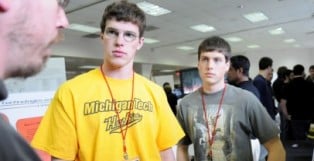Nominations Sought for Michigan Tech's Diversity Award
The Diversity Council is seeking nominations for faculty and staff deserving of the 2023 Michigan Tech Diversity Award. Nominations are due April 28.
Nominees contribute to diversity, equity, inclusion and sense of belonging (DEIS) on campus through exemplary leadership and actions, demonstrating a commitment to DEIS in areas such as:
- Recruitment and retention efforts
- Teaching
- Research
- Culturally responsive mentorship
- Inclusive programming
- Diversity literacy
- Community outreach activities
The award recipient will receive a $2,500 award and will be honored during a University awards dinner held in September.
More information, criteria and nomination instructions are listed on the Diversity Award webpage.

